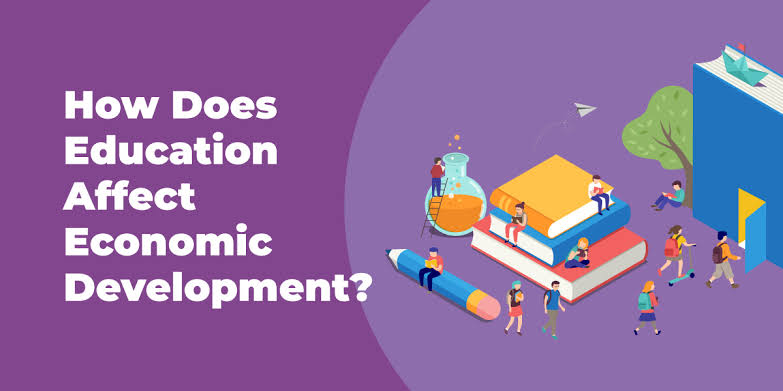Education is widely recognized as fundamental driver of economic growth and development in any society. In Nigeria context a country with a diverse economic landscape, the role of education becomes even more critical. Nigeria faces significant developmental challenges. This article explores the importance of education in promoting economic growth in Nigeria. It examines key factors challenges and potential strategies for leveraging education. The ultimate goal is sustainable development.
Education serves as cornerstone of human capital development. It equips individuals with knowledge and skills. Competencies essential for economic productivity and innovation also come from education. In Nigeria investing in education is crucial. It is not only for individual advancement. A skilled workforce capable of contributing to economic growth across various sectors is also fostered by it.
A well-educated workforce is more productive and efficient. It drives higher levels of output and competitiveness in the global economy. In Nigeria enhancing educational attainment levels can significantly boost productivity by equipping workers with relevant skills. These skills are aligned with the demands of modern industries and technologies.
Education as a Tool for Poverty Alleviation
Education plays a pivotal role in poverty alleviation by empowering individuals with the means to secure gainful employment, increase incomes, and improve living standards. In Nigeria, where poverty remains a pressing issue, expanding access to quality education can create pathways for socio-economic mobility and reduce income inequality.
The Impact of Education on Innovation and Entrepreneurship
Education fosters a culture of innovation and entrepreneurship by nurturing creativity, critical thinking, and problem-solving abilities among individuals. In Nigeria, promoting educational initiatives that prioritize STEM (Science, Technology, Engineering, and Mathematics) disciplines can stimulate technological advancements, spur entrepreneurial ventures, and drive economic diversification.
Challenges Facing the Nigerian Education System
Despite its significance, the Nigerian education system grapples with various challenges that hinder its effectiveness in driving economic growth:
- Infrastructure Deficits: Many schools lack adequate infrastructure, including classrooms, libraries, and laboratories, compromising the quality of education delivery.
- Teacher Shortages: There is a shortage of qualified teachers, particularly in rural areas, affecting the quality of instruction and student learning outcomes.
- Funding Constraints: Insufficient funding allocation to education limits the implementation of reforms, curriculum development, and infrastructure improvement initiatives.
- Quality Disparities: Disparities in educational quality between urban and rural areas, public and private institutions, perpetuate inequalities in access to quality education.
Strategies for Promoting Education and Economic Growth
To harness the full potential of education in driving economic growth in Nigeria, several strategies can be considered:
- Investment in Infrastructure: Prioritize investment in educational infrastructure to enhance learning environments and ensure equitable access to quality education across regions.
- Teacher Training and Development: Implement comprehensive teacher training programs to improve instructional quality, pedagogical skills, and retention rates.
- Curriculum Reforms: Align educational curricula with industry needs and global standards to equip students with relevant skills for the modern economy.
- Promotion of STEM Education: Emphasize STEM education to cultivate a skilled workforce capable of driving innovation, technological advancement, and industrial growth.
- Public-Private Partnerships: Foster collaboration between government, private sector stakeholders, and international organizations to mobilize resources, expertise, and innovative solutions for educational development.
- Enhanced Access and Inclusivity: Expand access to education for marginalized groups, including girls, rural populations, and persons with disabilities, to promote social equity and human development.
- Monitoring and Evaluation: Establish robust monitoring and evaluation mechanisms to assess educational outcomes, identify challenges, and inform evidence-based policymaking.
Conclusion
Education stands as a powerful catalyst for economic growth and development in Nigeria, offering pathways to poverty alleviation, enhanced productivity, and innovation-driven prosperity. By addressing the challenges facing the education system and implementing strategic reforms, Nigeria can unlock the full potential of its human capital, driving sustainable economic growth and positioning itself as a competitive player in the global economy. Embracing education as a cornerstone of national development is not merely a choice but a necessity for building a prosperous and inclusive society where every individual can contribute meaningfully to collective progress and prosperity.
